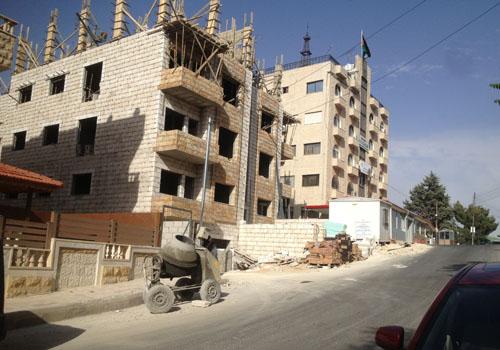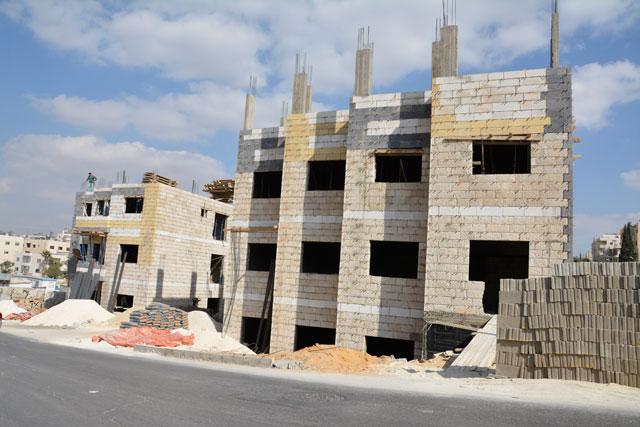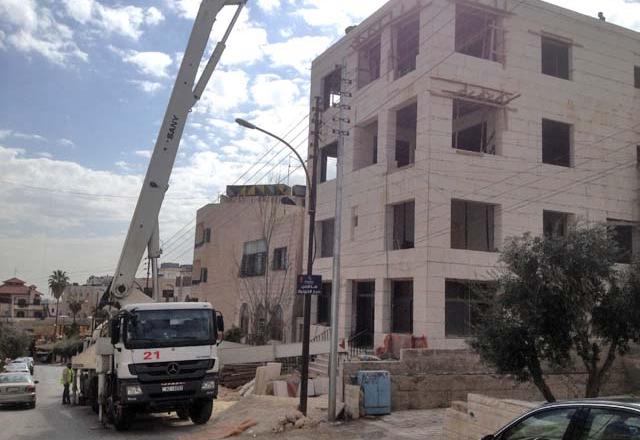You are here
Shortage of residential units expected this summer
By Omar Obeidat - May 09,2015 - Last updated at May 09,2015

AMMAN – Demand for residential units is projected to outweigh supply this summer, according to Jordan Housing Developers Association (JHDA) President Kamal Awamleh, who said prices may surge by 15 per cent “at least”.
The sector representative added that developers built around 4,000 housing units in the first four months of the year and will have another 30,000 apartments ready by the end of the year.
Awamleh told The Jordan Times that demand for apartments in the summer, particularly between June and September, is expected to increase sharply mainly among Jordanian expatriates, who usually come to the Kingdom to spend their summer holidays.
“We expect prices to go up by at least 15 per cent this year as a result of lower supply,” he said, noting that apartment prices increased by 8 per cent in 2014, which is the average annual increase rate.
The JHDA president indicated that the domestic market needs between 40,000 to 45,000 residential units every year, expecting a shortage of around 5,000 apartments due to what he described as barriers imposed by regulators, particularly the Greater Amman Municipality (GAM).
Awamleh said restrictions imposed by GAM on the number of flats in each building have forced many developers to build fewer housing projects.
“For example, sometimes developers tend to construct a building of 15 apartments, but GAM forces them to build only 10,” he explained, adding such regulations result in larger apartments that the majority of Jordanians cannot afford to purchase.
“It is a tough year for developers and buyers alike,” he added.
Awamleh claimed that around 100 housing companies have left the domestic market for the “lucrative” Turkish real estate market due to GAM restrictions.
The Jordan Times tried to contact GAM officials but none were available for comment.
However, in previous remarks to The Jordan Times, a GAM official refuted these charges, arguing that the municipality is implementing the building codes by-law.
Each housing project is licensed on the basis of infrastructure such as sewage networks, electricity grids and street widths at the locations, according to Imad Hiyari, deputy city director for planning affairs at GAM.
Awamleh said trading in the real estate sector is expected to drop from JD7.7 billion recorded in 2014 to around JD5.5 billion by the end of this year as developers are buying fewer land plots.
According to official figures released by the Department of Land and Survey, real estate trading dropped by 12 per cent in the first quarter of 2015 to JD1.6 billion, compared to JD1.8 billion registered in the same period of last year.
Related Articles
The Jordan Housing Developers Association (JHDA) on Wednesday demanded “fair and equal” enforcement of the Greater Amman Municipality’s (GAM) housing regulations to allow further growth of the sector.
Prices of residential apartments are likely to go up by at least 15 per cent this year as demand is projected to outweigh supply, Jordan Housing Developers Association (JHDA) President Kamal Awamleh said Tuesday.
The government may take a decision soon restricting investments in the housing sector to Jordanian developers only.













